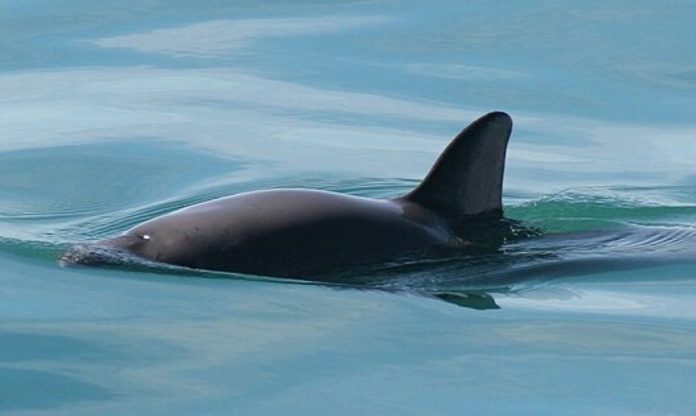Scientists searching for the world’s most endangered mammal reported seeing only between six and eight specimens during the Vaquita Porpoise Survey Expedition 2024, a decline from the 8 to 13 vaquita seen in 2023.
The survey, which takes place every year in Mexico’s Upper Gulf of California, returned the lowest number of individual vaquitas ever recorded. No newly born calves were observed, but one healthy yearling was spotted.
To all the mothers out there. We hope you enjoy your day along with some of our favorite mothers from this year. The last shot is in honor of the vaquita mama we saw last year on the Vaquita Survey 2023, exactly one year ago today. pic.twitter.com/rRCjE9mDuX
— Sea Shepherd US (@SeaShepherdSSCS) May 12, 2024
Vaquitas are shy, small, elusive porpoises native to the Gulf of California. Their population started to decline two decades ago following a boom in illegal fishing of totoaba, a fish coveted in China for its supposed medicinal properties. The gillnets used to catch the totoaba are deadly to the vaquita who, measuring only around 1 meter, can easily become entangled in them and drown.
In 1997, there were approximately 600 vaquitas; in 2017, there were fewer than 30. Alex Olivera, the Mexico representative for the Center for Biological Diversity, told the San Diego Union Tribune: “Vaquitas reproduce so slowly that recovery is impossible without help, and their very survival remains in grave doubt.”
Mexican authorities and scientists cautioned that there may be more vaquitas than were found in the survey area, as it covers only a small area of the species’ presumed habitat. Furthermore, the results of this year’s survey confirm that the vaquita porpoise population remains stable compared to the number of sightings in 2019 (7-15) and 2021 (5-13).
“While these results are worrying, the area surveyed represents only 12% of the total area where vaquitas were observed in 2015,” Barbara Taylor, the researcher who led the survey, said in a statement. “We just need to go out and find out whether the vaquitas have moved someplace else and adapt the management accordingly,” she said in a separate interview with the New York Times.
The expedition was a collaboration between the Mexican government and the nongovernmental organization Sea Shepherd Conservation Society. The research crew included scientists from Mexico, Canada and the United States, who used two types of monitoring to conduct the survey: visual and acoustic.
Visual monitoring involved direct observation of the species from the boats named “Sirena de la Noche” (Night mermaid) and “Seahorse,” the latter equipped with high-range binoculars known as BigEyes. Acoustic monitoring involved 34 F-POD detectors placed within the research area to capture the sound pulses of the vaquitas and guide the observation vessels.
Durante el Crucero de Observación Vaquita 2024 se realizó monitoreo de ADN ambiental para analizar presencia de poblaciones de #VaquitaMarina en la RB #AltoGolfo de California. 🐋
Conoce más de este proceso en nuestro video. #ConservarParaVivir 🌊🌿🛥️🏜️ pic.twitter.com/EEGcsCAlgz
— CONANP (@CONANP_mx) June 12, 2024
“Sea Shepherd’s commitment to the vaquita’s survival is absolute,” Pritam Singh, chairman and CEO of Sea Shepherd said. “Along with the Mexican government, we will redouble our efforts to protect this species.”
According to Singh, the National Commission of Protected Natural Areas (Conanp), will deploy new technologies in the coming weeks to help find more vaquitas, an effort that will have the full support of Sea Shepherd.
The Mexican government and Sea Shepherd are training young people from the coastal city of San Felipe, Baja California, to gather information on the species. The pilot group has been provided with drones, cameras and a boat to gather data on vaquitas in coordination with Sea Shepherd.
Mexico News Daily
